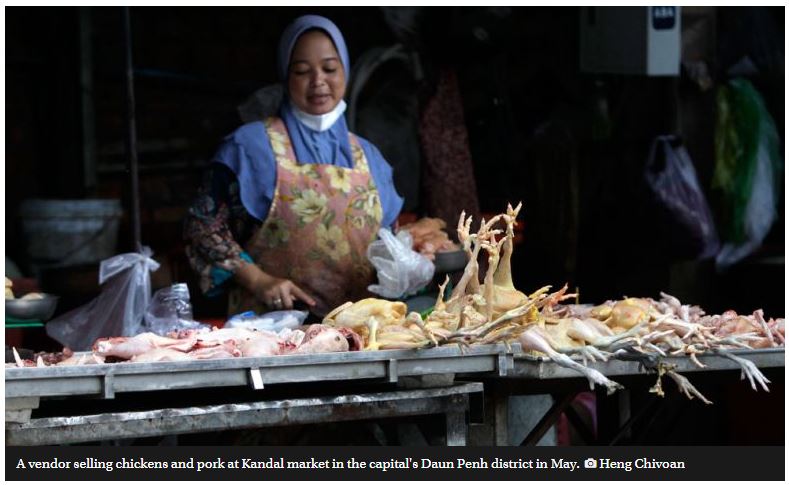Cambodia: Inflation pains felt mostly by Kingdom’s low income earners
Economists recommend that households forego any unnecessary spending in order to better weather the effects of inflation as some Cambodians complain that they are living hand to mouth and are not earning enough to be able to save for emergencies like health issues or important milestone events like weddings.
“In the context of inflation being on the rise, low-income people are simply earning too little to even cover their expenses and they now face shortages and are forced to cut back on any unnecessary spending,” said Ngeth Chou, an economic researcher.
According to Chou, low-income people are also being forced to borrow more and some are spending their savings to ameliorate the effects of their poverty.
“One thing they to resort to is selling their livestock such as their chickens, ducks or other animals, but some of them will have to sell-off their savings they hold in gold or silver to pay for medical treatments and necessary expenses such as sending children to school. Others without savings will have to rely on relatives and borrow money to make ends meet,” he said.
Chou recommended that households forego any unnecessary spending, where possible.
Sim Phareth is a food vendor at a public location in Phnom Penh. She said that she has faced rising prices for nearly every ingredient and now she has become a debtor.
“Before, I did not borrow money from anyone. Now I know how to borrow to repay the loan but I end up always owing someone,” she said.
Phareth notes that – compared to 10 years ago – commodity prices are at an all-time high and even though wages have risen they haven’t kept pace with inflation.
“Before, I used to sell rice with meat for only 2,000 riel, but now it is 4,000 riel. For ingredients, I used to spend 100,000 riel whereas now I have to spend 200,000 riel but my income is only 200,000 riel per day, including those costs and other necessary expenses each month. I pay around $300 for school fees, house rental fees, water and electricity. I have no savings now. In the past there was at least some money left over to save for emergencies,” she said.
Another wholesaler, who asked not to be named, said she was forced to lose money in order to keep regular customers.
“When the price goes up, I am the seller, it is also difficult, and my regular customers as well as my new customers always say that I sell in a high price. And some of the goods when go up in price and after that the prices can fall, but some of the goods go up and continue to rise because they are imported from abroad, which has to go through tariff barriers,” she said.
Vegetables at the markets used to be sold cheaply, but prices have skyrocketed to an all-time high. One kilogram of cabbage now costs 7,000 riel.
The inflation issue has not escaped the notice of the government, which has announced plans to provide cash to 600,000 vulnerable households affected by inflation with two million people benefiting.
Source: https://www.phnompenhpost.com/business/inflation-pains-felt-mostly-kingdoms-low-income-earners


 Thailand
Thailand




